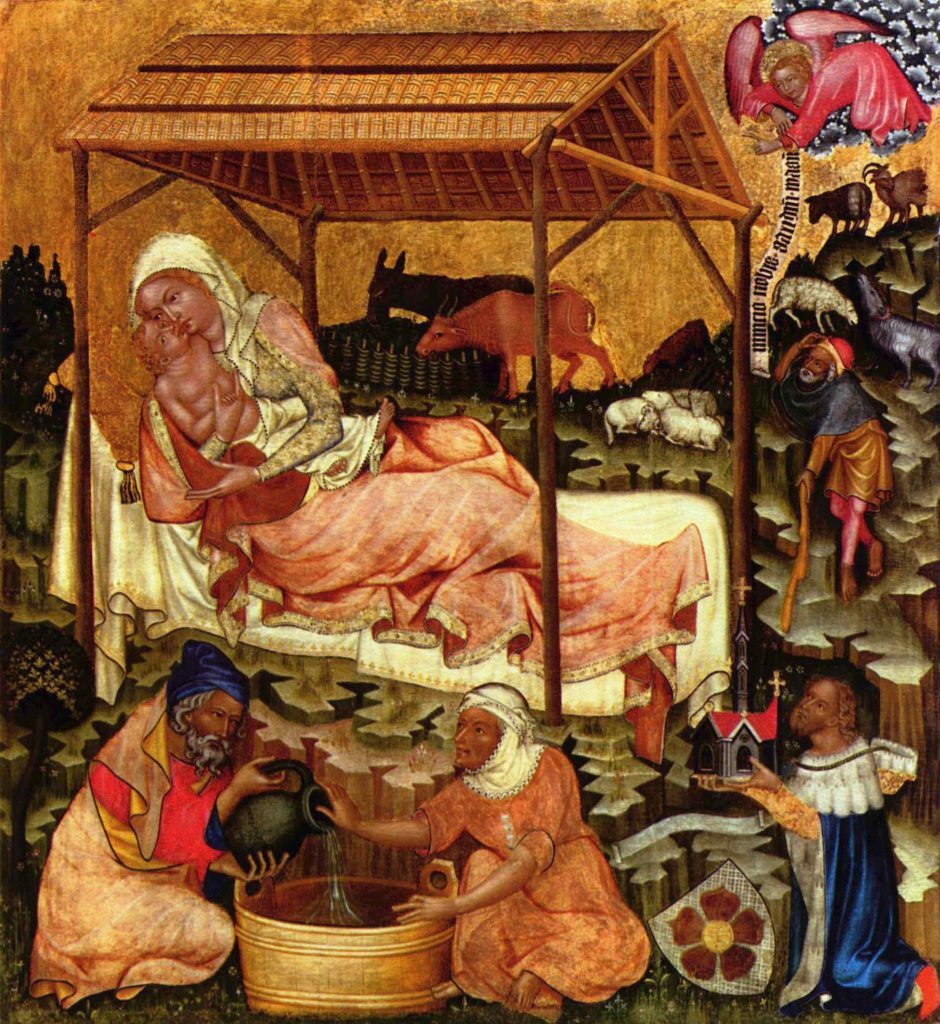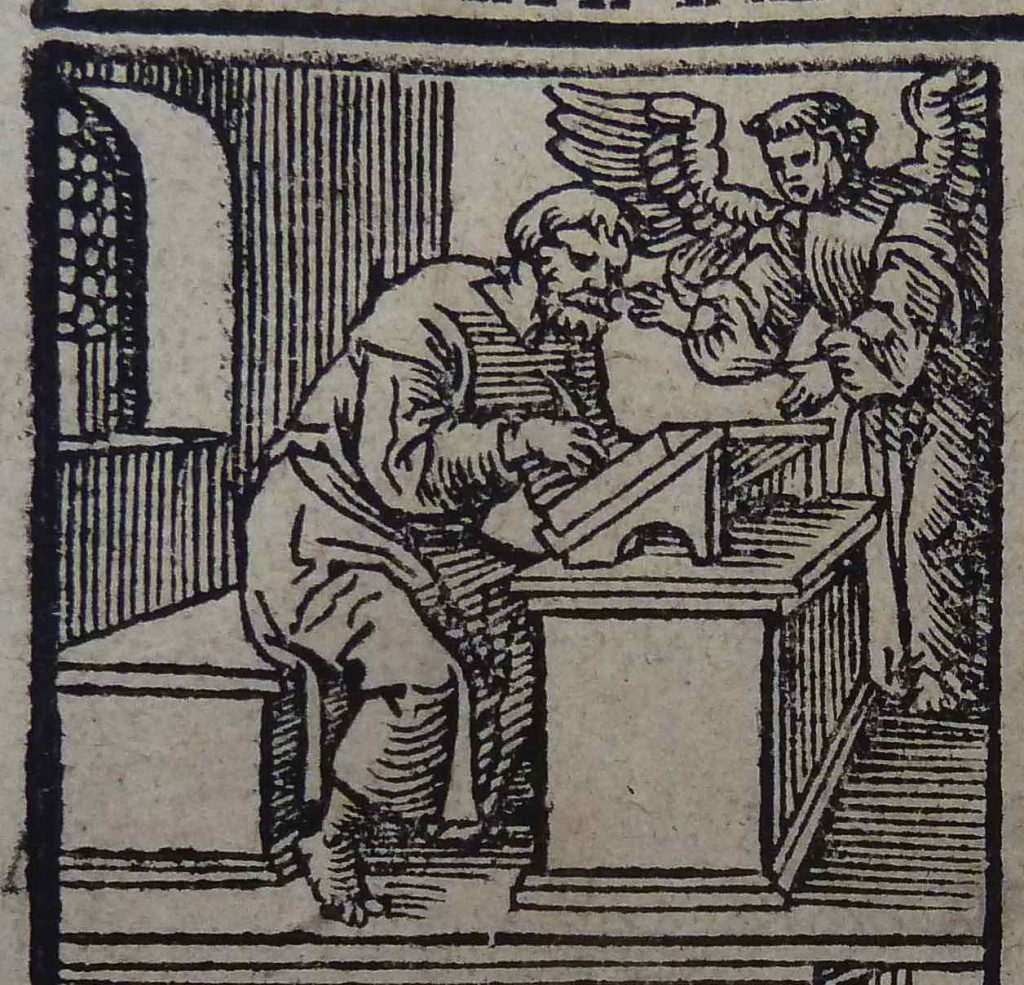The BHAG of the Mission Committee
Best Practices for the Mission Committee
Getting Ready part 2
Getting Ready part 1
Living in Chaos
Making An Impression
Obedience (Matthew 1:24-25)

“When Joseph woke up, he did what the angel of the Lord had commanded him and took Mary home as his wife. But he had no union with her until she gave birth to a son. And he gave him the name Jesus.”
Matthew 1:24-25 is at first glance just a simple note telling us only that Joseph was obedient to God’s instruction through the angel. It is enough to know that of course – because that is all that is needed to keep to the core message of who Jesus was. On the other hand, Luke tells us a huge amount of circumstance that Matthew glosses over. Recognizing that, we can realize that Matthew is telling us the story of Christ’s birth largely from Joseph’s viewpoint – leaving Luke to tell it to us from Mary’s.
The circumstance Matthew skips (Luke 1:39-80, 2:4-40) is the subject of much of our Christmas pageantry today; the young couple’s journey to Bethlehem, the refusal of a room at the inn and the birth of Jesus in the manager, amidst the animals. Of course it’s possible that Matthew simply didn’t know about other details, like Mary’s visit to Elizabeth and Zechariah’s encounter with Gabriel in the temple (things Luke found out in his careful study of all that had happened). All the same, one thinks that he would’ve surely known more about Jesus’ birth. Yet he is not alone in dropping such detail – neither John nor Mark give it either. Mark introduces us to Jesus at his baptism, and John tells us who He was before time, and then introduces us to Him at his baptism.
The point is that each of the Gospel writers reflects Jesus’ life from their vantagepoint. Each tells the truth (for they write from the Spirit’s prompting) but each speaks from their own frame of reference. The glory of Christ is such that it cannot be fully represented from one voice or one account– just as the Scripture is never fully explained in a single sermon or by a single teacher. The Glory of God is such that it takes all of us, living all of eternity, to merely reflect the character and nature of God. Such is our purpose, because we were all made for His glory. As His Word says, “Bring my sons from afar and my daughters from the ends of the earth— everyone who is called by my name, whom I created for my glory, whom I formed and made.”
We can ponder that and wonder if it would’ve added to our ability to know who He is or all He did to have more than four accounts of Jesus’ life, but that is idle speculation for fallen flesh. What is important is that we do as Joseph did. That we promptly obey God’s instructions as given to us, knowing that God is giving them specifically to us – and that we seek to honor His Name with our whole being in both what we do and in what we deliberately do not do.
Amen.
Obedience to the Lord is not only measured by how much we do for our Savior, but by how we obey Him when nobody is looking.
John Wimber
APPLICATION: Intentionality
What has God asked you to do in this season of your life?
What have you given up for the sake of His Name, honour and glory?
Fulfillment (Matthew 1:22-23)

“All this took place to fulfill what the Lord had said through the prophet: “The virgin will be with child and will give birth to a son, and they will call him Immanuel”—which means, “God with us.”
Matthew quotes Isaiah 7:14, a prophesy that led to God calling Isaiah to name his next son Maher-Shalal-Hash-Baz, meaning, “quick to the plunder, swift to the spoil” – a poignant prophetic object lesson of the impending Assyrian invasion. Yet everyone who ponders such things can know that Maher-Shalal-Hash-Baz was an imperfect fulfillment of Isaiah 7:14, for the Lord had said, “the virgin will be with child” and Isaiah’s wife had already bore him a son – the very son he had with him when he was given these words. Although the Hebrew could mean “young girl”, such would not be the full meaning of the word.
In 1:22-23 of his Gospel, Matthew is saying that the fulfillment of the prophesy is only now given, in Jesus Christ. That is a very bold observation, and it is an observation that is itself pregnant with meaning.
Just what meaning is gestated in the mind and ultimately given birth by confession is up to the reader. For the disbeliever, it simply means Matthew transposed a cherry-picked prophesy to his own point. But this Gospel is not for the disbeliever, we’ve already grasped that Matthew wrote it for those who consider themselves the people of God. For them (the average Jewish reader in Matthew’s day), it would’ve immediately stirred up hopes of deliverance from Roman occupation. We can relate to that, because that occupation – which was understood as punishment for national sin – was an offensive and dangerous oppression in the minds of most Jews. Just as secular governments are to most Christians today.
But for the reader with true faith in God, it means not only that Jesus is the fulfilment of yet another prophesy (praise the Lord!), it means a disciple of God – in this case Matthew – can rightly interpret Scripture.
That is no small thing – Matthew was not a learned Jewish scholar, as Paul was. Matthew was formerly a tax collector for the occupying Romans. He had been a traitor to his own people, an outcast that Jesus invited to become a disciple. That such a man as he can pick up the Scripture and see something even the learned Pharisees and scribes failed to notice is a powerful testimony to the work, wisdom and grace of God. Only the Holy Spirit could reveal Christ in the prophesies of Isaiah, and only the Holy Spirit could cause him to articulate it so perfectly that the finished work is literally Gospel. And that is not just a point of marvel at something the Spirit did a long time ago with someone on the other side of the world. It is a point of fact with profound implication, because the same Holy Spirit is at work right now in you, to bring you to complete maturity and full Christlikeness.
Praise the Lord indeed!
To have the Scriptures in a language you understand is a great gift. To read the Scriptures is an awesome privilege. To study the Scriptures is a tremendous opportunity. But to obey them – that is the test. Only when you have passed that test should you dare to interpret them for others.
Marcus Verbrugge
Spiritual maturity is not reached by the passing of the years, but by obedience to the will of God.
Oswald Chambers
APPLICATION: Thankfulness
We benefit from Matthew’s obedience just as we benefit from the obedience of all who came before us. Someone – likely many thousands of people – will benefit from your obedience to God and His Word. Thank God for that. It is His grace to all His children.
Prophesy (Matthew 1:22-23)

After disclosing the angel’s words to Joseph, the writer of Matthew abruptly switches back to addressing the reader, “All this took place to fulfill what the Lord had said through the prophet: “The virgin will be with child and will give birth to a son, and they will call him Immanuel”—which means, “God with us.”
With all we know, the explanation seems almost superfluous. Those who know their Bible well cannot read of Mary’s pregnancy, Joseph’s decision, his dream and the angel’s counsel, without thinking of the familiar passage in Isaiah 7, when the prophet first speaks of Immanuel. But how many of Matthew’s original readers would have done likewise is hard to say, because Isaiah wasn’t writing a particularly gleeful promise in Isaiah 7.
At the time, Isaiah had been told to go with his son to talk to the king of Judah. It was while Jerusalem (Judah’s capital) was being besieged by Israel and Aram. The king of Juday and all his countrymen were disheartened that their northern brothers (Israel) had allied themselves with Damascus (Aram), believing the combination too great for them to resist successfully. While giving the Lord’s strong counsel that Judah should not fear this development, the Lord spoke to Ahaz, king of Judah, “Again the Lord spoke to Ahaz, “Ask the Lord your God for a sign, whether in the deepest depths or in the highest heights.” But Ahaz said, “I will not ask; I will not put the Lord to the test.” Then Isaiah said, “Hear now, you house of David! Is it not enough to try the patience of men? Will you try the patience of my God also? Therefore the Lord himself will give you a sign: The virgin will be with child and will give birth to a son, and will call him Immanuel.” Isaiah goes on to detail that before the boy is old enough to know right from wrong, the siege will be over because of a massive invasion from Assyria, and the two kings Ahaz fears will be swept away. “The Lord will bring on you and on your people and on the house of your father a time unlike any since Ephraim broke away from Judah—he will bring the king of Assyria.” […] “Then I went to the prophetess, and she conceived and gave birth to a son. And the Lord said to me, “Name him Maher-Shalal-Hash-Baz. Before the boy knows how to say ‘My father’ or ‘My mother,’ the wealth of Damascus and the plunder of Samaria will be carried off by the king of Assyria.”
So the prophesy’s immediate application in the day it was given was to be Maher-Shalal-Hash-Baz, and we can know it was given as a prophesy of deliverance followed by imminent war. The birth of Immanuel would be followed by sweeping destruction and foreign occupation (via Assyria) until the completion of the whole prophesy and the setting up of Messiah’s kingdom (see Isa 8:9-1, 9:1-7). The implication is that Immanuel’s birth was to be a sign to Ahaz of peace for him and his household, even amidst the conflict and danger all around, and a sure sign of God’s coming kingdom, when public peace would reign forever over all nations.
So it was in Matthew’s day too – the coming of Immanuel (Jesus Christ) signals peace with God for those who receive Him, even though all around is destruction and foreign occupation – at the time via the Romans. The same is true for every Christ-follower. We receive Him into our lives and with Him we have peace with God, even though all around is the chaos of our broken world. And just as Ahaz did, and just as the righteous in Matthew’s day did, we can take Immanuel’s presence with us as a surety of God’s coming Kingdom, when we will never again fear war or destruction.
Amen.
It may be a cliché, but it is fact: If we recognize Immanuel we know peace for ourselves and we have hope for peace on earth. If we do not recognize Immanuel we have no peace for ourselves and we have no hope for peace on earth.
Marcus Verbrugge
APPLICATION: Thankfulness, Intentionality
Jesus told us, “Peace I leave with you; my peace I give you. I do not give to you as the world gives. Do not let your hearts be troubled and do not be afraid.”
Are you experiencing His peace today? How can you extend His peace to those around you?

